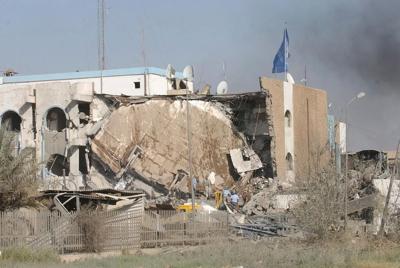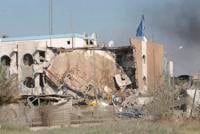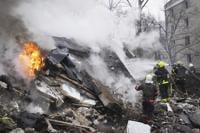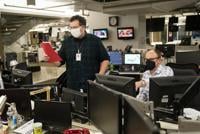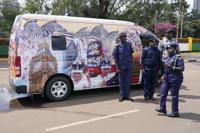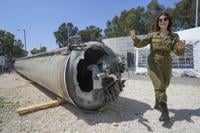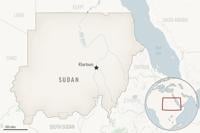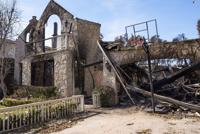BAGHDAD (AP) — Iraqi and United Nations officials on Saturday marked the 20th anniversary of a deadly attack on the U.N. headquarters in Baghdad.
The Aug. 19, 2003, truck bomb attack on the Canal Hotel in Baghdad, which housed the U.N. headquarters in Iraq at the time, killed 22 U.N. staff including the head, Sergio Vieira de Mello, a rising U.N. star. It was the deadliest attack against U.N. staff in its history.
The attack came in the wake of the U.S.-led invasion of Iraq that toppled the dictator, Saddam Hussein, but unleashed an insurgency and years of brutal civil war in the country.
At the commemoration ceremony held Saturday at the site of the attack, which has since been converted into a rehabilitation center for people struggling with addiction, the head of the U.N. Assistance Mission for Iraq, Jeanine Hennis-Plasschaert, said that the “wounds created by the 2003 attack – and the violence that came after it – run deep” and “may never fully heal.”
But Hennis-Plasschaert pointed to recent gains in Iraq's stability and attempts by the current government to improve social services.
The past 20 years have been “a very rough road,” she said. "But throughout these years, the United Nations has not given up on its efforts to contribute to peace and stability in Iraq.
Iraqi Foreign Minister Fouad Hussein, speaking at the event, called the attack “one of the most tragic incidents in the history of Iraq” and affirmed the country's commitment to combating terrorism. As for the U.N. workers who lost their lives, he said, "their achievements will remain in the history of Iraq.”
A day earlier, at the U.N. headquarters in New York, officials held a silent commemoration and read out the names of the victims.
President of the U.N. General Assembly Csaba Kőrösi met briefly with some of the survivors. In a statement, he hailed “humanitarian workers, who race to save lives, and remain at crisis scenes long after the global spotlight dims.”
___
Associated Press writer Edith Lederer in New York contributed to this report.

